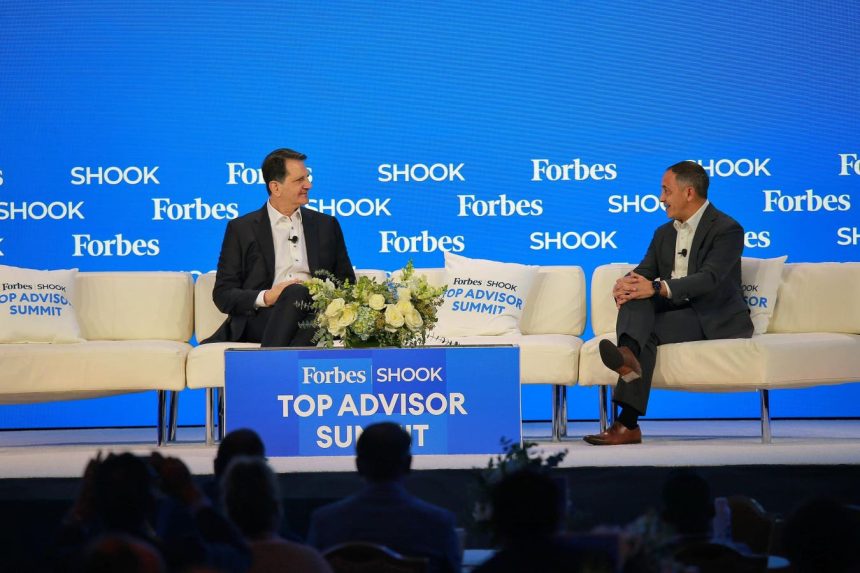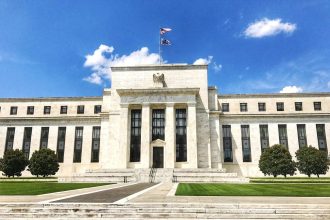Lawrence Golub, billionaire founder and CEO of private credit firm Golub Capital, emphatically dismissed fears that the rapid growth of private credit, specifically direct lending, is leading to a bubble. Speaking at the ninth annual Forbes/SHOOK Top Advisor Summit in Las Vegas, NV, on Thursday, Golub argued that direct lending continues to offer investors superior risk-adjusted returns and acts as a necessary hedging tool for traditional 60/40 portfolios with stocks and bonds.
“It’s for sure not a bubble,” he said to a room full of financial advisors. Golub asserted that an allocation to private credit and direct lending improves the risk-adjusted return of a traditional 60/40 portfolio: “The returns from direct lending across decades are often better than half of private equity funds.”
Golub’s comments were delivered at a time when private credit business has come under scrutiny thanks to the bankruptcy filing of Ohio auto parts conglomerate First Brands, which binged on off balance-sheet direct loans, and currently owes creditors including Jefferies, UBS and Nomura, at least $10 billion.
Golub—who has a net worth of $3.3 billion, according to Forbes—founded his New York City-based company in 1994 originally as a buyout firm, but after the 2000 dotcom bust he switched its strategy to lending; Today, the firm has roughly $80 billion in assets under management.
While acknowledging that private equity firms haven’t been giving money back to investors as quickly as some expected, he argued the asset class’s overall tarnished reputation is “overdone.” He stressed that premium returns continue for firms that act as skilled operators rather than just passive investors, bringing an information advantage over public markets: “Unlike traditional public market investments, there is persistence of manager performance over time in private markets.”
He pointed out that while money has flooded the space–there was some $3 trillion committed to private credit at the start of 2025, according to Morgan Stanley—the subsequent increased competition has been heavily concentrated in the large, broadly syndicated loan substitute deals.
This bifurcation, Golub argued, leaves the core middle market—where his firm focuses—relatively less saturated, preserving opportunities for quality lenders. “It has seen vastly less competition,” he said.
The billionaire CEO also advised investors to focus on net returns after credit losses across the cycle, not just spreads on loans. “It is net returns after credit losses across the cycle… credit losses or the absence of credit losses drives premium returns over time,” he said. This means performance hinges on avoiding losses through careful due diligence: “Manager selection is critical in private markets, especially private credit, direct lending.”
Golub advocated for firms that act as “finance companies” and serve as solution providers, which he said his firm achieves through 90% repeat business with private equity sponsors. He concluded by noting that, despite recent disappointments in private equity distribution pacing, the overall asset class’s ability to deliver premium returns remains strongly intact.
“Private equity has been great for the U.S. economy,” said Golub. “It continues to be great for the U.S. economy.”
Read the full article here














